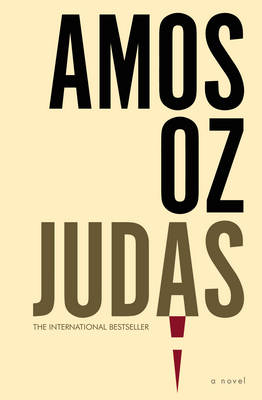Amos Oz, Judas (2014)
Translated from the Hebrew by Nicholas de Lange (2016)
Jerusalem, 1959: newly single Shmuel Ash abandons his studies and answers an advert on a campus noticeboard. He becomes the companion of an irascible old invalid named Gershom Wald. His job is to spend each evening reading to and debating with Wald; the days are his own.
Shmuel also becomes infatuated with Atalia Abravanel, the fortysomething woman who shares Wald’s house. It transpires that she is his daughter-in-law, and that her father was a renegade Zionist who advocated peaceful coexistence between Jews and Arabs.
Shmuel discusses with Wald his idea that Judas Iscariot was not a traitor, but a true believer in Jesus’s divinity. Over the course of the novel, parallels emerge between this figure of Judas and Atalia’s father – and, perhaps, Shmuel himself.
There’s a lot to like about Judas: the novel is very amusing in places, and the prose rhythmic; repetition of words and descriptions serves to suggest that Shmuel’s life is caught in a loop. But, to be honest, I found a lot of the discussions quite dry to read; I suspect that, had I known more about the religious and political context, I may have enjoyed the book more.
Should this book reach the MBIP shortlist?
I don’t know whether Judas is going to make my own top six, but personal taste plays a strong part in this instance. I do appreciate a lot of what the novel is trying to do, and there is certainly enough to make it worthy of a spot on the shortlist.


0 Comments
2 Pingbacks